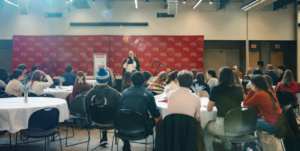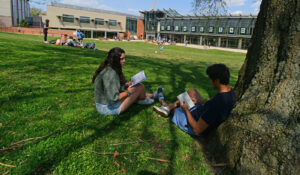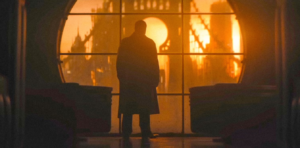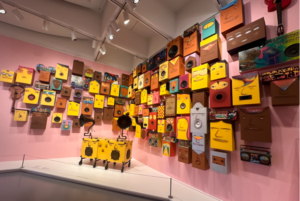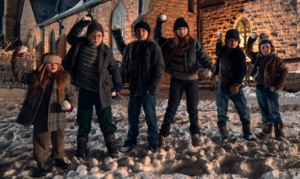Vatican Writers Discuss Pope Francis Five Years After His Election
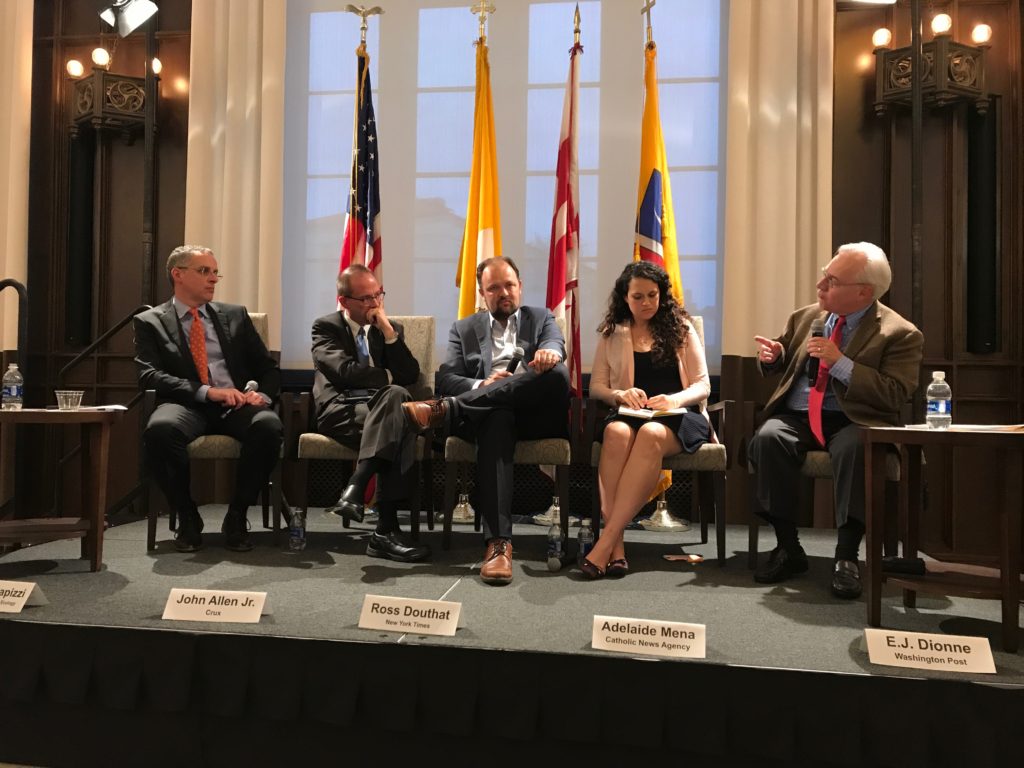
The Institute of Human Ecology hosted Vatican writers to discuss Pope Francis after five years. Courtesy of Katie Ward

By Katie Ward
On Wednesday, April 25th, the Institute for Human Ecology hosted a “Francis At Five: Examining the Pontificate of Pope Francis” panel of Vatican writers to celebrate and analyze the fifth anniversary of Pope Francis’ papal election.
The event was hosted in Heritage Hall and attended by over 150 people. The panelists included John Allen Jr., the CRUX Magazine editor who specializes in coverage of the Vatican and Catholic Church; Adelaide Mena, a freelance writer and journalist who previously worked for Catholic News Agency and EWTN; E. J. Dionne, a political reporter from the Washington Post; and Ross Douthat, a New York Times op-ed columnist, author of Pope Francis and the Future of Catholicism. The panel was moderated by Dr. Joseph Capizzi, the executive director of the Institute for Human Ecology .
The panel first talked about the challenge of being a Catholic while covering the pope and retaining journalistic integrity. The panelists agreed that it was challenging to tread lightly and write about their own church.
Dionne said the best way to write about the Pope was being the leader of a divine institution run by flawed humans, and Douthat explained that the job often felt like explaining and defending the Pope.
Allen explained that being a beat reporter for the Vatican, he had to treat it like the White House while covering the news.
“I never want to lose that sense of awe. It’s easy to get jaded about it. You want to be able to approach this story with critical eyes, and tell the unpleasant stories you want to be able to recognize the popes are fallible,” Allen said. “But I also never want to forget what it feels like to the average Catholic, what it feels like to see this figure, because that’s different than an American president. It’s qualitatively different, and I never want to lose that sense as I’m trying to tell that story.”
Dionne and Allen agreed that after the scandals that erupted in the Church in the early 2000s, the pace of covering the papacy changed and the coverage of the Church got tougher, and continues to be a journalistic challenge. Douthat added that it shaped conservative willingness to criticize Francis.
Capizzi then turned the discussion towards the topic of the pope’s “Francis effect”, a term coined by the media after his 2013 election which conveyed how Francis’ humility, humor, and mercy made him attractive to the people. Mena admitted that it is still premature to determine the statistical nature of the Francis Effect, but that if there is a Francis Effect, it is that because of the election of the Argentinian pope, the global north can no longer ignore the global south.
Dionne agreed that although a focus on poverty isn’t inconsistent with the past popes, it is more important with Francis. He continued to say that Francis’ origin from the south has created in him a deep affection for more traditional forms of piety, and he has made Catholicism, through his mercy-based leadership, into a “people’s religion”.
Capizzi mentioned Francis “casting a wider net” to be less divisive, and asked whether he has succeeded in bringing solidarity and correction to the Church. Douthat answered that this slow unification is not unique to Francis, but that Catholicism should ultimately be an alternative to the left and the right, not partisan to one side.
After the discussion, the panel looked to the audience for questions. Audience members asked about de-centralization of the Church and the pope’s support of the economy, before asking again about the place of the left and right in the Church, and the “ominous language of the ‘liberal Catholic’ and ‘conservative Catholic’”.
“The language is reductive and creates a parallel between the Vatican politics and secular politics that doesn’t exist,” Douthat agreed. “But those are the terms people understand.”
Dionne admitted that there was something flawed about the language used, and that Francis was in fact not a liberal but a radical, bringing attention to the slums instead of the political stage.
Capizzi began the evening by encouraging panelists and audience members alike to have a conversational and inquisitive dialogue. The moderator expressed satisfaction with the way the event turned out.
“I hoped to bring together some of the most prominent Vatican writers, with some different perspectives, and answer some questions people had,” he said. “Just a friendly conversation on the Pope Francis pontificate’s success in achieving goals and meeting challenges — constructively, by serving the poor and justice and leading with mercy, and less constructively, by dividing some Catholics over doctrine.”

